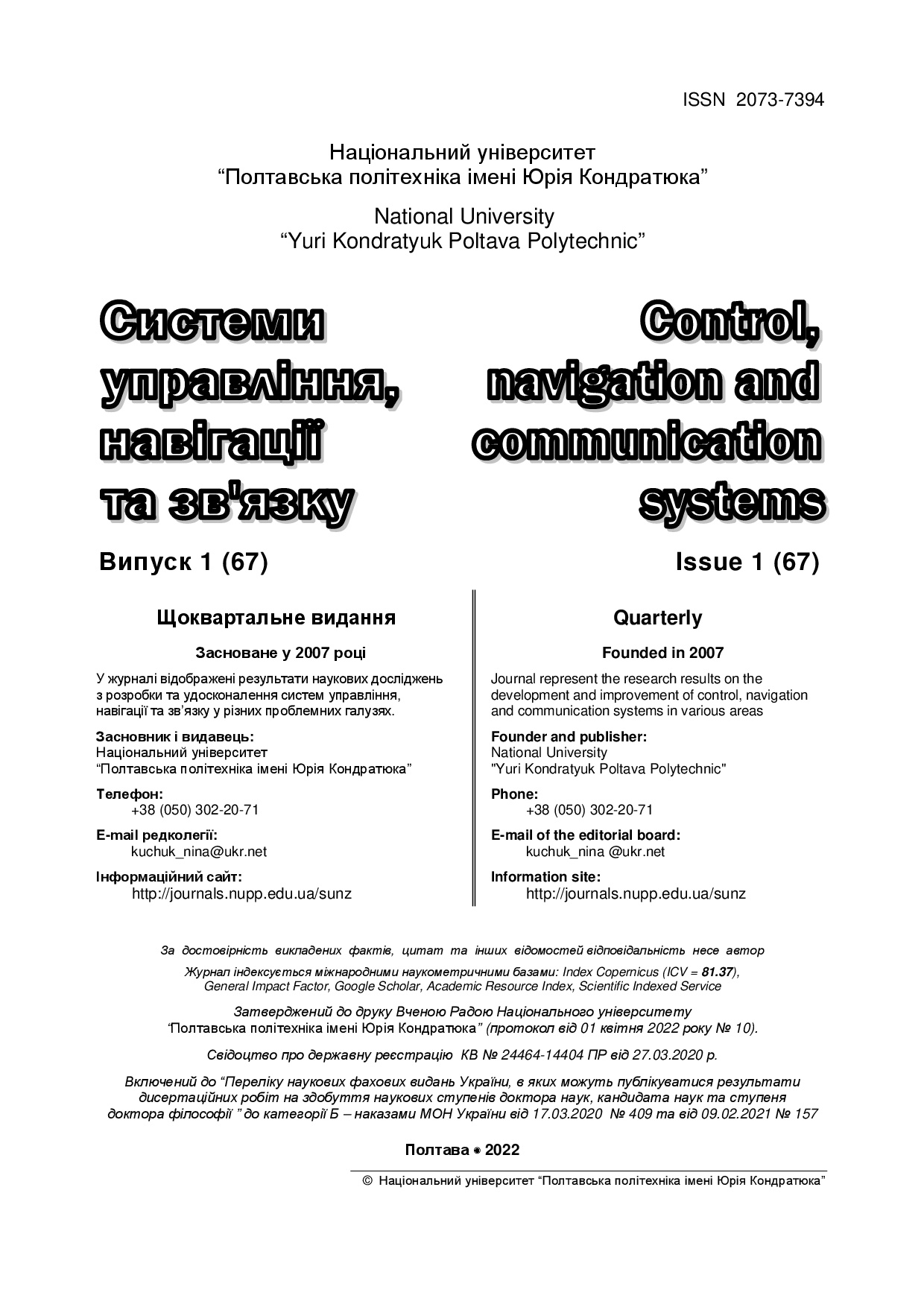MULTIAGENT APPROACH TO COMPUTER MANAGEMENT IN A HETEROGENEOUS DISTRIBUTED COMPUTER ENVIRONMENT
DOI:
https://doi.org/10.26906/SUNZ.2022.1.038Keywords:
multiagent control, agents, distributed computing, reliability, computational complexityAbstract
The reliability of modern computing control systems in a heterogeneous distributed computing environment, along with efficiency, survivability, security, control efficiency, is an important component of their quality. Increasingly, these systems fall into the category of "critical", have an absolute impact on the activities of organizations and enterprises within which they operate. The loss of such systems, even for a short time, leads to serious problems related to loss of income, unforeseen costs, downtime of production and personnel, loss of time, and sometimes man-made disasters. As you know, the greatest impact on the reliability of control systems has the reliability and fault tolerance of a set of software and hardware. Therefore, solving problems related to improving the reliability of the software part of the systems is the most urgent task. Currently, significant results have been obtained in the field of evaluation and forecasting of reliability indicators of elements and typical software packages at the stage of their design; a large number of methods known to algorithms and programs are known; a number of normative documents on project reliability assessment have been developed. However, the task of real-time reliability assessment, when accurate and operational accounting of a number of factors is required, has not been sufficiently solved. To solve the problem of multi-agent approach to computing control in a heterogeneous distributed computing environment used methods of systems analysis, set theory - to develop models of task distribution, models of tasks and computing resources, general systems theory - to study and develop methods of task distribution, logic-theory theory. for modeling computational processes. The article considers a multi-agent approach to computing control in a heterogeneous distributed computing environment. The algorithm is based on the use of economic mechanisms to regulate the supply and demand of resources in the computing environment. The architecture of the multi-agent approach and the functions of the agents are described. Particular attention is paid to calculating the reliability of the task plan based on the logical-probabilistic method.Downloads
References
Malashenko Ju.E., Konovalov M.Gh., Nazarova Y.A. (2011) Task management in heterogeneous computing systems. Izv.RAN. Theory and control systems. No. 2. P. 43–61.
Skakalina O.V. (2018) Innovative concept of complex distributed control systems. Control, navigation and communication systems. Vol. 2, No. 48. P. 24–29.
Agrawal D., Jaiswal L. H., Singh I., Chandrasekaran K. (2012) An Evolutionary Approach to Optimizing Cloud Services.Computer Engineering and Intelligent System. Vol. 3, No. 4. P. 47–54.
Casalicchio, E., Menasce, D.A. (2004) QoS in Grid computing. IEEE Internet Computing. Vol. 8, No. 4. P. 85–87.
Sukhoroslov O.V. (2015) The combined use of high-performance resources and grid infrastructures within the Everest cloud platform. Supercomputing Days in Russia: Proceedings of the International Conference, September 28-29, 2015, Moscow. P.706–711.
Vyktorova V.S., Volyk B.Gh., Stepanjanc A.S. (2006) Reliability Analysis of the Computational Control Complex by the Method of Combining Calculation Models. Reliability. No. 2 (17). P. 53–59.
Cherkesov Gh.N., Rjabynyn Y.A. (1981) Logical and probabilistic methods for studying the reliability of structurally complex systems. M.: Radio and communication. 264 p.
Tomas Kh. Kormen (2006). Algorithms: construction and analysis. Introduction to Algorithms. Chapter 34. М.: Вильямс. 1296p.
Kostenko V.A., Zoryn D.A. (2012) Algorithm for Synthesizing the Architecture of a Real-Time Computing System with Account for Reliability Requirements. Izv. RAN. Theory and control systems. No. 3. P. 76–83.
Kshemkalyani A. D., Singhal M. (2008) Distributed Computing: Principles, Algorithms and Systems. Cambridge University Press. 756 p.
Bychkov Y.V., Boghdanova V.Gh., Korsukov A.S., Oparyn Gh.A., Feoktystov A.Gh. (2014) Multi-agent approach to managing distributed computing in a clustered Grid system. Izv. RAN. Theory and control systems. No. 5. P. 95–105.
Korshunov Ju.M. (1987) Mathematical foundations of cybernetics. M.: Energy. 624 p.
Feoktystov A.Gh., Bыchkov Y.V., Oparyn Gh.A., Kanter A.N. (2014) Multi-agent algorithm for the distribution of computing resources based on the economic mechanism for regulating their supply and demand. Bulletin of computer and information technologies. No.1. P. 39–45.
Yzmalkov S., Sonyn K., Judkevych M. (2008) Theory of economic mechanisms. Questions of Economics. No. 1. P. 4–26.
Mozhaev A.S. (1994) Current state and some directions of development of logical and probabilistic methods of systems analysis. Theory and information technology for modeling the security of complex systems. St. Petersburg: IPMASH RAN. P.23–53.
Kuchuk Gh.A. (2018) Current state and trends in the development of computer systems of critical applications. Control, navigation and communication systems. Vol. 1, No. 47. P. 110–113.
Soroka M.Ju. (2020) The method of adapting the behavior of agents in the intelligent training system for the training of air traffic controllers. Control, navigation and communication systems. Vol. 2, No. 60. P. 17–20.
Ulichev O.S. (2018). Research of models of information dissemination and information influences in social networks. Control, navigation and communication systems. Vol. 4, No. 50. P. 147-151.




